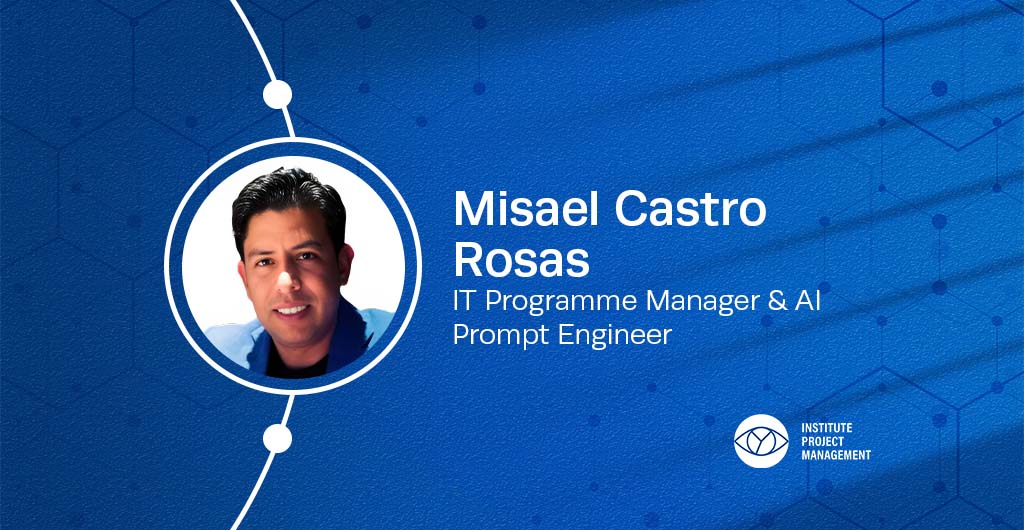Need advice? Call Now, Schedule a Meeting or Contact Us


Speak to an advisor
In recent Irish Times article, Professor Sebastian Green and Dr Patrice Cooper discuss the challenges facing newly appointed leaders.

In a recent Irish Times article, a senior faculty member at the Institute of Project Management, Professor Emeritus Sebastian Green, and his UCC colleague Dr Patrice Cooper discuss the challenges facing newly appointed leaders.
A newly-appointed leader who doesn’t give time to reflection is doomed to failure.
You have landed a leadership position in an organisation, and the rubber has finally met the road. All that good management stuff you have learned about taking control, being innovative, marshalling the troops, and inspiring people must now be actioned.
However, as an inexperienced leader, you can find yourself trapped in a paradox: how do you wield power while being a servant? How do you inspire with vision while soliciting participation, engagement and commitment?
Worse, once the glow of success has worn off, leaders often gravitate between feeling like imposters, fraudsters or charlatans on the one hand; and, on the other, omnipotent, grandiose demigods. Both are features of “narcissistic wounding”, and research suggests leaders are particularly prone to it.
With neither stance desirable, the first challenge in becoming a leader is establishing an authentic sense of self that engenders legitimacy and credibility. You can’t be authentic trying to imitate someone else.
To achieve authenticity, a certain humility is required, along with a capacity to honour the past. There is indeed wisdom in the adage: “bide your time, listen and observe”.
A newly-appointed leader who doesn’t give time to reflection is doomed to failure. Begin to build your support structures, listen to those who have been here before you, garner loyalty, and stay grounded. Be open to what others say. Build on the past alongside building enthusiasm for the future.
While there is generally a honeymoon period where minor errors are excused, don’t be afraid to use the phrase “mea culpa occasionally”.
There will always be detractors, envious individuals who delight in any perceived weakness. Learn from them, see what they might represent as symptoms of organisational malaise. But do not become captured by them.
When confronted by difficulties, avoid adopting one-size-fits-all or off-the-shelf solutions. Too often, we identify difficulties as problems and jump to “solution mode”. Only when the unintended consequences of our “solution” force us to re-examine the problem can we begin to appreciate that deeper reflection and understanding are required.
Many problems leaders face are complex; they are often “wicked” – contradictory and paradoxical. The best leaders can tolerate this ambiguity. Negative capability alongside positive capability is essential.
Leaders must build the capacity to work at the edge of certainty and uncertainty in readiness for change. Leaders’ own view all too often compromises such a stance that they should be god-like, with all the answers, infallible.
The attendant risks of turning into a control freak and an arrogant one are ignored. More seasoned leaders speak of a changed leadership perspective or mindset. They view their primary role in identifying problems, highlighting questions and putting issues on the agenda, as opposed to any attempt to solve those issues. For them, a key role is to harness the knowledge of others in the pursuit of goals, answers and solutions.
This brings us to the third challenge. Despite leaders’ best efforts, many employees prefer to see leaders as “the enemy”. A concrete battle with a “self-centred or power-crazed” leader is much more tangible than dealing with the reality of external challenges. The cost of this collective defence mechanism is not just the loss of trust and loyalty it generates but a dilution of effort away from the organisation’s primary task.
One way of addressing this is for new leaders to recognise, right at the outset, that a primary function of effective leadership is the development of new leaders and leadership potential throughout the organisation. This shifts the agenda from being all about me to be all about the other.
In a world where “doing” more than “being” is centre stage, it is understandable why leaders focus on action rather than reflection. This can be evident especially in the early stages after taking up a new role: a rush to action can appear vital to indicate leadership capability. Yet, our own research demonstrates, it is at this very juncture that lack of knowledge is more acute as leaders attempt to navigate their way through an unfamiliar landscape.
What is most required at this early stage, our work with leaders indicates, is reflection and self-awareness. Over the past 20 years, we have explored how this might best be accomplished and how avoiding the pitfalls of bad leadership is as important as embracing the received wisdom about good leadership.
As the title of a leading article in HBR, the bible for business leaders makes clear, we need to be aware of why good leaders make bad decisions. Intriguingly, we have found that sometimes, bad leaders make good decisions.
The trick is to steer a path through the Scylla and Charybdis of management arrogance, omnipotence, and vulnerability so that one does not sink beneath the waves. Leadership is a dangerous occupation, and survival is by no means assured. Explore the Project Leadership & Management Diploma course to learn how to become a leader and enhance your leadership skills.
Professor Sebastian Green

Sebastian Green is Professor Emeritus of Management at University College Cork. He works as a senior executive coach with leadership, strategy, culture change and group dynamics. Dr Patrice Cooper is a lecturer in management at University College Cork with a particular interest in leadership and transition.














